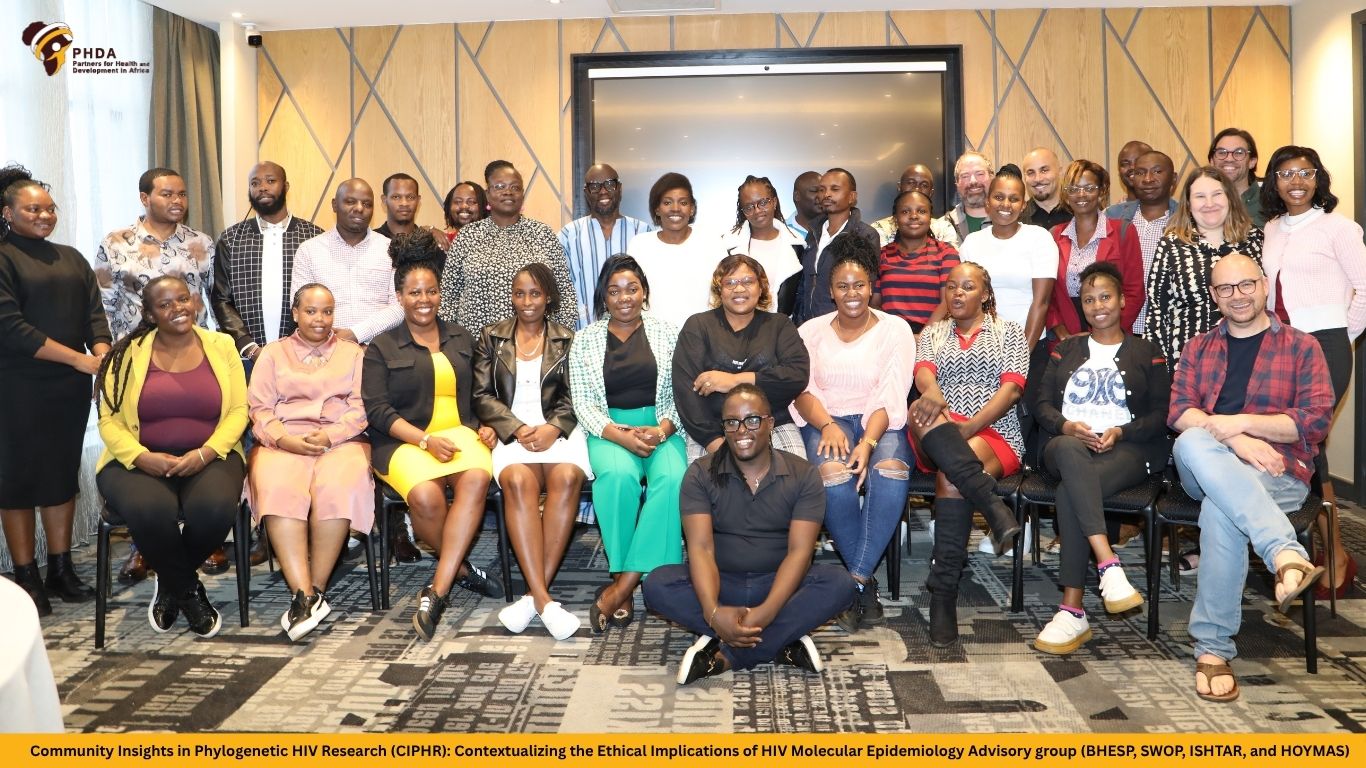As the Community Insights in Phylogenetic HIV Research (CIPHR) project draws to a close, stakeholders reflect on the journey in ethical, community-driven HIV research. Based in Nairobi, Kenya, the CIPHR initiative set out to explore how molecular epidemiology specifically HIV genetic sequencing can inform more targeted and ethical HIV prevention strategies.
Through the engagement of over 1,284 participants across four key community organizations (BHESP, SWOP, ISHTAR, and HOYMAS), the project successfully combined molecular and behavioural data to identify HIV transmission clusters and emerging infection hotspots. By linking similar HIV genetic sequences and analysing viral load data, the study has shown how phylogenetic insights can support more responsive and effective programming.
CIPHR was more than just a research study as at its core was community participation and ethical reflection. An advisory group of community health activists was formed to interrogate the implications of phylogenetic methods and co-design a pilot study rooted in lived realities. This collaboration ensured that the science remained grounded in social context and community involvement

